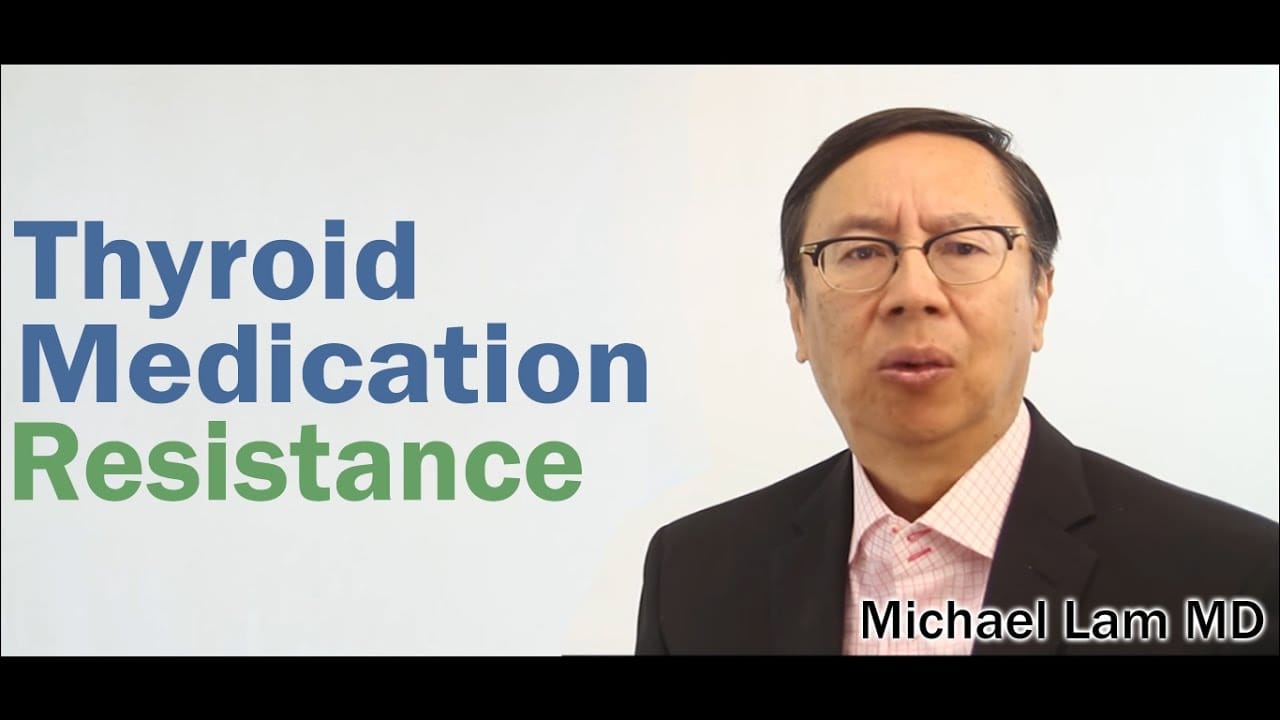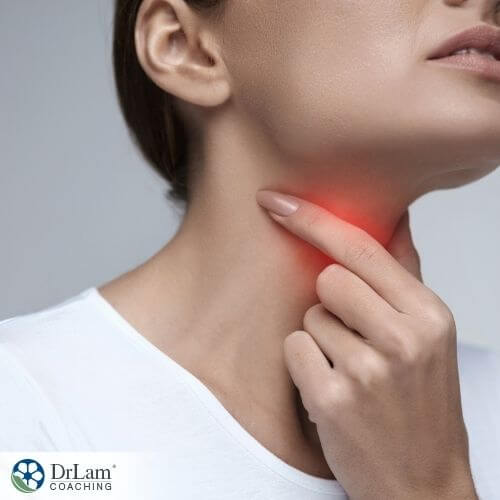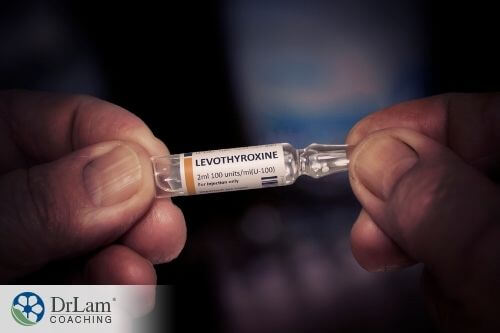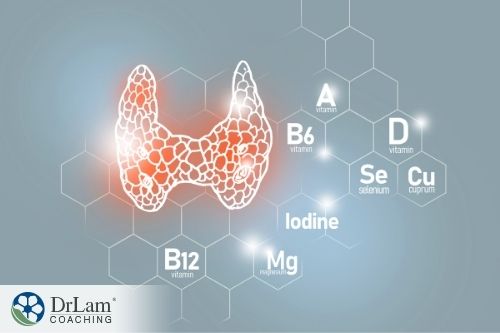
It is estimated that just over four and a half percent of Americans over the age of 12 years suffer from hypothyroidism. This is about 10 million people. Of these, those over 60 tend to be those most affected, while one in every eight women may develop the conditions. The conventional method of addressing the symptoms of the condition is through hypothyroidism medications. Unfortunately, conventional medicine also has people taking these hypothyroidism medications for the rest of their lives.
The term hypothyroidism is used when your thyroid gland does not produce enough thyroid hormones. Your butterfly-shaped thyroid gland is situated towards the front of your neck. Its main purpose is the release of hormones that help with energy use and regulation.
 Because your thyroid provides the energy your body needs to function properly, it also plays a role in heart and digestive function. But there is more to it than that.
Because your thyroid provides the energy your body needs to function properly, it also plays a role in heart and digestive function. But there is more to it than that.
When your thyroid no longer produces the thyroid hormones your body needs to function properly, it causes a hormone imbalance that could potentially affect just about every system in your body. This could result in a multitude of symptoms that seem unrelated to your thyroid gland. Many of these symptoms are connected to adrenal fatigue, because your thyroid and adrenal glands are, to a large extent, dependent on each other to function properly. Adrenal fatigue is a common condition caused by chronic stress.
Although hypothyroidism medications may help address some of the symptoms associated with adrenal fatigue, they do not necessarily promote healthy adrenal gland function.
Your adrenals, as part of your body’s NeuroEndoMetabolic (NEM) stress response, tend to increase cortisol production when your body goes into a state of stress. This stress is not only from external sources, however, but could arise from internal sources as well. A thyroid gland not functioning as it should most certainly causes stress, as does possible hypothyroidism medications.
The problem with these hypothyroidism medications, as is the case with most conventional medications, is that most are artificial and could add to your body’s stress load even while you feel better. This added stress could severely affect your already overworked adrenal glands. Furthermore, hypothyroidism medications may also have a set of unwanted side effects.
Besides your thyroid not producing the thyroid hormones it should, the fact that your adrenals produced more cortisol could lead to a hormonal imbalance. This hormonal imbalance may present itself in a variety of symptoms that most people would think unrelated. You may find yourself given medications to address these different symptoms, while the root cause is not investigated or addressed.
 Just as each of us is different, so too are the symptoms you may show when hypothyroidism sets in. Furthermore, your symptoms may also depend on the severity of the condition. In many cases, identifying hypothyroidism is made difficult because of the diverse nature of possible symptoms as they may also indicate other health conditions.
Just as each of us is different, so too are the symptoms you may show when hypothyroidism sets in. Furthermore, your symptoms may also depend on the severity of the condition. In many cases, identifying hypothyroidism is made difficult because of the diverse nature of possible symptoms as they may also indicate other health conditions.
Amongst the most common hypothyroidism symptoms are:
Please note that you do not need to have all these symptoms to have hypothyroidism. Nor do these symptoms only pertain to the condition. They all also relate to adrenal fatigue. This implies that, whatever course of action you decide to take, it would be a good idea to consider looking after your adrenal health as well.
Most people find that the condition tends to progress gradually and may also find that their variety of symptoms increase. Identifying the condition is often easier in the elderly than in younger people.
Certain factors increase your risk of developing hypothyroidism. Females are more prone to the condition than males. Other factors include your family history, whether you have an autoimmune disorder, and your age. Those over 60 years are more likely to develop the condition than younger people.
Other possible causes include:
 Hypothyroidism, if not adequately addressed, could result in a variety of health issues that seem unrelated. These include the development of a goiter, sleep apnea, nerve injury, carpal tunnel syndrome, and peripheral neuropathy. In severe cases, you may experience reduced kidney function and even myxedema coma. The latter refers to the development of multiple organ abnormalities and even progressive mental deterioration.
Hypothyroidism, if not adequately addressed, could result in a variety of health issues that seem unrelated. These include the development of a goiter, sleep apnea, nerve injury, carpal tunnel syndrome, and peripheral neuropathy. In severe cases, you may experience reduced kidney function and even myxedema coma. The latter refers to the development of multiple organ abnormalities and even progressive mental deterioration.
A strong link exists between hypothyroidism and certain autoimmune conditions. You may also develop: diabetes, rheumatoid arthritis, adrenal gland disorders, Celiac disease, lupus, and pituitary gland issues. These health issues may lead to hypothyroidism and vice versa.
If hypothyroidism is suspected, your conventional healthcare professional will not immediately put you on hypothyroidism medications due to the possible side effects. Instead, they will check for physical signs of the condition and do certain lab tests.
The physical signs they would look for include slower reflexes and heart rate, dry skin, and swelling in your neck area. They would also require you have blood tests done.
These tests measure whether your pituitary gland is creating enough thyroid-stimulating hormone. If the levels of this hormone are low, it means that your thyroid is not receiving sufficient stimulation to produce enough thyroid hormones.
Another blood test measures your thyroxine hormone (T4) levels. This hormone is produced in the thyroid. If the blood tests show enough thyroid-stimulating hormone is produced in the pituitary gland while your T4 levels are low, it is often identified as hypothyroidism. However, keep in mind that these labs could point to other health issues, so other tests may be recommended to accurately determine whether you have the condition.
It is also important to note that certain medications may affect your blood test results. Biotin, a vitamin supplement, and certain blood-thinning medications, for example, could influence the results. So be sure to tell your healthcare professional if you are taking any supplements or medications, whether they practice in the conventional or holistic field of medicine.
 The types of hypothyroidism medication most commonly used contain levothyroxine. This is a synthetic version of the thyroid hormone thyroxine (T4). It copies thyroid hormone action and helps balance your blood’s thyroid hormone levels.
The types of hypothyroidism medication most commonly used contain levothyroxine. This is a synthetic version of the thyroid hormone thyroxine (T4). It copies thyroid hormone action and helps balance your blood’s thyroid hormone levels.
Once starting this medication, however, you may find relief only after a few weeks. In most cases, people starting hypothyroidism medications need to stick to them for the rest of their lives. You also need to go for periodic blood tests in case of a need for dosage adjustments. This is usually needed when you do not feel better after a few weeks, when your hormone levels do not stabilize, or when you experience weight gain, for example.
Levothyroxine is available in pill, gel cap, or liquid form.
Whatever hypothyroidism medications are decided on, they may have possible side effects. These include, amongst others:
Some side effects are the result of getting too much thyroid hormone, suggesting you may need to change how much you are taking or your type of medication, with the help of your doctor.
Also important to note: Certain medications and supplements may have contraindications when taken together with hypothyroidism medications. If you take other medications or supplements and start using hypothyroidism medications as well, make sure you tell your healthcare practitioner about them. This includes supplements like calcium and iron supplements as well as certain antacid medications.
A holistic approach to hypothyroidism involves not only addressing your thyroid problem but looking for the root cause of the condition. Natural hypothyroidism medications may be involved in the form of one containing natural thyroid hormone extracts made from the thyroid glands of pigs. What is more, these hypothyroid medications do not only contain thyroxine (T4), but also triiodothyronine (T3). This may have added benefit. Conventional hypothyroid medications contain only thyroxine. Naturally, T4 and T3 together regulate your heart rate, body temperature, metabolism, and a host of other functions.
Please note that you can only get these hypothyroidism medications from a qualified healthcare practitioner. Also, do not confuse glandular concentrates bought from natural food stores with these medications. You can only get them with a prescription.
Besides taking hypothyroidism medications, you should also make sure to provide adequate adrenal support and follow a healthy diet. The adrenal fatigue diet is good in this regard as it is rich in fruits and vegetables.
Be aware that soy or soy products may hinder your body’s ability to absorb thyroid hormones. Soy may also interfere with the absorption of hypothyroid medications. And while you need fiber for your digestive tract to work properly, do not consume too much. Like soy, it may also interfere with hormone absorption. Fast foods, processed foods, and sugary foods are a no-no as they add to your body’s stress load.
Also remember to get enough sleep, as your body goes through a healing process during this time, while stress-relieving practices like yoga and meditation could help reduce stress and provide adrenal support. You could also consider going to hypothyroidism meetings. Many hospitals sponsor such meetings. Talking about what you are going through helps relieve stress.
 Besides the natural thyroid medications mentioned, many people turn to supplements like vitamins or other nutrients to help manage their condition. In many cases, these supplements do not address the thyroid condition itself, but rather, assist with underlying causes. These could include inflammation or an underlying autoimmune process.
Besides the natural thyroid medications mentioned, many people turn to supplements like vitamins or other nutrients to help manage their condition. In many cases, these supplements do not address the thyroid condition itself, but rather, assist with underlying causes. These could include inflammation or an underlying autoimmune process.
Before you start using a supplement to address your thyroid issues, please talk to your primary healthcare practitioner first. They may do a blood test to find out the blood levels of specific vitamins or minerals. Your labs may show a nutrient deficiency which would affect your dosage. Certain of these supplements could also cause an adverse reaction if used with other medications you may be using.
Vitamin B plays a role in thyroid function and hormone regulation. When taking a vitamin B supplement, it is best to take one including the entire vitamin B complex. Good vitamin B food sources include lean red meat, fish, leafy greens, milk and yogurt, eggs, nuts, legumes, seeds, and whole grains.
People suffering from hypothyroidism tend to have low vitamin D levels. Supplementing with vitamin D improves your TSH levels, according to research, as well as thyroid antibodies in those with autoimmune thyroiditis. Although food sources containing vitamin D exist, like orange juice or yogurt, they often do not contain the quantities your body needs.
A good vitamin D source is the sun. Sun exposure allows your skin to make vitamin D from cholesterol. Do not overdo your time in the sun, though, as you could develop skin issues like skin cancer. Ten to thirty minutes of sun exposure three to four times per week is sufficient. However, if you live in northern climates or it's winter, UV levels may not be adequate even in the sun, and a supplement will be necessary.
Selenium, which plays a role in thyroid synthesis and metabolism, also reduces thyroid peroxidase antibodies. Thyroid peroxidase is an enzyme that plays a role in thyroid hormone production. Besides taking a selenium supplement, you could include foods containing this essential mineral. Good food choices include poultry, eggs, brazil nuts, shitake mushrooms, fatty fish like sardines or salmon, red meat like beef or lamb, and scallops.
Besides taking a supplement, consuming more protein will help you get enough of this important amino acid. Together with iodine, tyrosine plays a role in the production and conversion of thyroid hormones.
Your body needs iodine to make thyroid hormones. Good food choices to increase iodine consumption include different seaweeds, milk, cheese, eggs, and poultry. When considering an iodine supplement, it is especially important to first talk to your primary healthcare practitioner. Taking iodine supplements could have either a positive or negative effect on thyroid health. Your healthcare practitioner is best able to determine dosage. Excessive iodine supplementation could actually cause hypothyroidism or autoimmune thyroiditis like Hashimoto’s thyroiditis. So it is especially important to make sure you are getting the right dose.
Zinc plays an important role in thyroid hormone T4 to T3 conversion. Like selenium, it also helps improve thyroid function and balance hormone levels. Besides using a zinc supplement, you could also include zinc-rich foods in your diet. Good food options include nuts, pumpkin seeds, shellfish, lean red meat, and legumes.
While conventional hypothyroidism medications may help address hypothyroidism, they are made from artificial substances. A holistic approach may involve these medications made from natural sources. They also contain two thyroid hormones instead of just one. Some supplements may also help, but it's important to talk to your doctor first.
If you believe you suffer from hypothyroidism, here are a few things you can do to help alleviate the situation.
If you would like to know more or need assistance with hypothyroidism medication, the team at Dr. Lam Coaching can help. We offer a free** no-obligation phone consultation at +1-626-571-1234. We will privately discuss your symptoms and various options during this call. Alternatively, please consider sending us a question through our Ask The Doctor system by clicking here.
Yes, as a matter of fact! There is a natural hypothyroidism medication that contains not one, as is the case with conventional medicine, but two thyroid hormones. This medication is not a synthetic product. Some supplements may also help with the root causes of the condition and provide thyroid support. It's critical to talk to your doctor first though.
